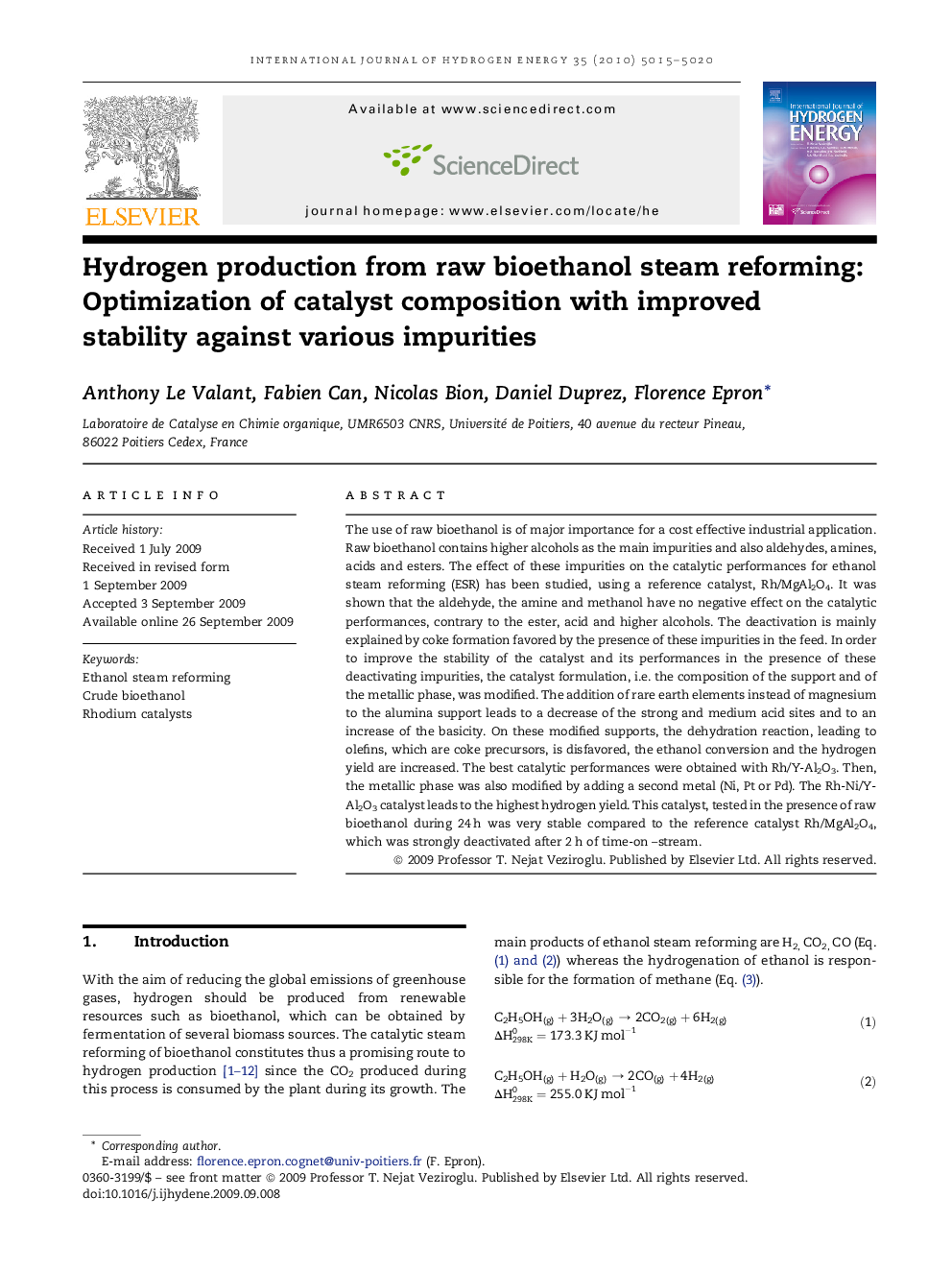| Article ID | Journal | Published Year | Pages | File Type |
|---|---|---|---|---|
| 1282848 | International Journal of Hydrogen Energy | 2010 | 6 Pages |
The use of raw bioethanol is of major importance for a cost effective industrial application. Raw bioethanol contains higher alcohols as the main impurities and also aldehydes, amines, acids and esters. The effect of these impurities on the catalytic performances for ethanol steam reforming (ESR) has been studied, using a reference catalyst, Rh/MgAl2O4. It was shown that the aldehyde, the amine and methanol have no negative effect on the catalytic performances, contrary to the ester, acid and higher alcohols. The deactivation is mainly explained by coke formation favored by the presence of these impurities in the feed. In order to improve the stability of the catalyst and its performances in the presence of these deactivating impurities, the catalyst formulation, i.e. the composition of the support and of the metallic phase, was modified. The addition of rare earth elements instead of magnesium to the alumina support leads to a decrease of the strong and medium acid sites and to an increase of the basicity. On these modified supports, the dehydration reaction, leading to olefins, which are coke precursors, is disfavored, the ethanol conversion and the hydrogen yield are increased. The best catalytic performances were obtained with Rh/Y-Al2O3. Then, the metallic phase was also modified by adding a second metal (Ni, Pt or Pd). The Rh-Ni/Y-Al2O3 catalyst leads to the highest hydrogen yield. This catalyst, tested in the presence of raw bioethanol during 24 h was very stable compared to the reference catalyst Rh/MgAl2O4, which was strongly deactivated after 2 h of time-on –stream.
